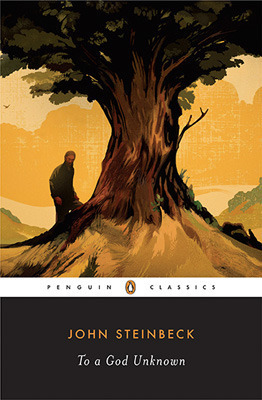Fifteen or twenty little piles of picked bones lay on the side-hill, and grey coyotes were slinking away toward the brush, and vultures roosted on the ribs and pulled off the last strips of flesh.
When they had got down the slope to the river source with its dry and brittle moss and its black ferns, they drew up under a bay tree. “Let’s go over the ridge and drive in any cattle we can see,” Thomas said. They left the river and followed the shoulder of the ridge, and the dust clouded up and clung about them. Suddenly Thomas pulled up his horse and pointed down the slope. “There, look there.” Fifteen or twenty little piles of picked bones lay on the side-hill, and grey coyotes were slinking away toward the brush, and vultures roosted on the ribs and pulled off the last strips of flesh.
Thomas’ face was pinched. “That’s what I saw before. That’s why I hate the country. I’ll never come back,” he cried. “Come on, I want to get to the ranch. I want to start away tomorrow if I can.” He swung his horse down the hill and spurred it to a trot, and he fled from the acre of bones.
Joseph kept him in sight, but he did not try to follow him. Joseph’s heart was filled with sorrow and with defeat. “Something has failed,” he thought. “I was appointed to care for the land, and I have failed.” He was disappointed in himself and in the land. But he said, “I won’t leave it. I’ll stay here with it. Maybe it isn’t dead.” He thought of the rock in the pines, and excitement arose in him. “I wonder if the little stream is gone. If that still flows, the land is not dead. I’ll go to see, pretty soon.” He rode over the ridge top in time to see Thomas gallop up to the houses. The fences were down around the last stacks of hay, and the voracious cattle were eating holes in it. As Joseph came close, he saw how lean they were, and poor, and how their hips stuck out. He rode to where Thomas talked with the rider Manuel.
“How many?” he demanded.
“Four hundred and sixteen,” Manuel said. “Over a hundred gone.”


